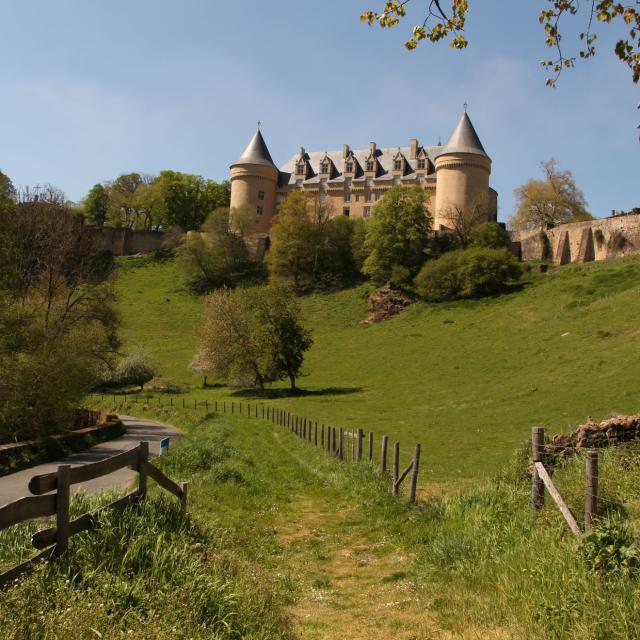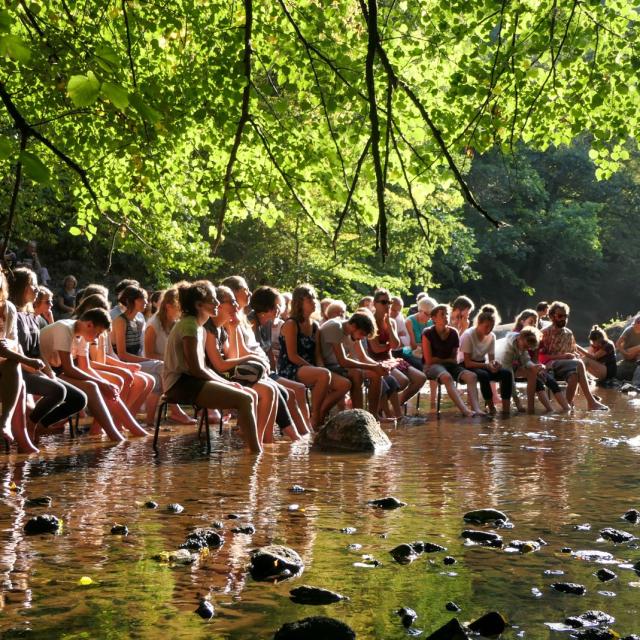Between the Middle Ages and today
The picturesque, formerly fortified town of Rochechouart boasts an exceptional built heritage: medieval castle, church with its torso spire, and all the houses built of impactite, which are part of the town’s history: the Maison des Consuls (15th century), the Rue Dorée, the quartier des prières, the Grand’Rue…
Did you know? The town’s name is closely linked to the Viscounts de Rochechouart family, who reigned for over 800 years. The family’s roots lie in the château, built on the rocky spur in the 13th century. It retains its 15th-century allure, and since 1985 has housed a departmental museum of contemporary art.
 Château de Rochechouart - photo office de tourisme Porte Océane du Limousin
Château de Rochechouart - photo office de tourisme Porte Océane du Limousin







































